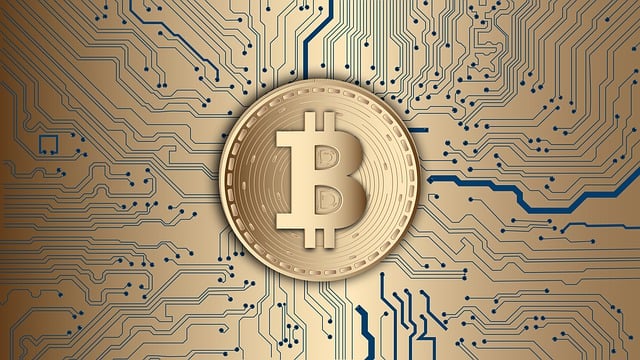In the fast-paced world of decentralized finance (DeFi), 'default' means smart contract or protocol failures, not loan non-repayment as in traditional systems. Top DeFi platforms like Uniswap, Aave, and Compound must prioritize robust security to mitigate risks stemming from coding errors, market volatility, etc. Users interacting with these platforms need to be informed and understand the technology to make safe decisions, fostering trust in the DeFi ecosystem. Each top DeFi platform has a unique default mechanism: Aave uses automated liquidation, Compound offers loan term extensions, and MakerDAO employs its governance token MKR for loss coverage.
In the dynamic landscape of decentralized finance (DeFi), understanding ‘default’ goes beyond conventional banking. This article explores the concept, delving into how it’s defined and executed on top DeFi platforms. We present a comprehensive analysis of leading DeFi platforms, examining their unique default mechanisms and strategies for managing risk. By unraveling these intricacies, we empower users to navigate DeFi’s complexities with confidence, identifying the top DeFi platforms that prioritize robust default management.
- Understanding the Concept of 'Default' in DeFi Platforms
- Top DeFi Platforms and Their Default Mechanisms: A Comprehensive Analysis
Understanding the Concept of 'Default' in DeFi Platforms

In the dynamic world of decentralized finance (DeFi), understanding the concept of ‘default’ is crucial. Unlike traditional financial systems, where default refers to a borrower’s failure to repay a loan, in DeFi platforms, it takes on a different nuance. Here, default often pertains to smart contracts or protocols that fail to execute as intended due to coding errors, security vulnerabilities, or external factors like market volatility. These defaults can have significant implications, leading to financial losses for users and even the collapse of entire projects.
Top DeFi platforms, such as Uniswap, Aave, and Compound, have become hubs for innovative lending, borrowing, and trading mechanisms. However, their success hinges on robust security measures and careful protocol design to mitigate default risks. Users interacting with these platforms need to be aware of potential pitfalls and understand the underlying technology to make informed decisions. By embracing transparency and adopting best practices, DeFi developers aim to create resilient systems that minimize defaults, fostering a more trustworthy and accessible financial ecosystem.
Top DeFi Platforms and Their Default Mechanisms: A Comprehensive Analysis

The world of decentralized finance (DeFi) has seen remarkable growth, and among its key components are top DeFi platforms that offer innovative financial services. However, understanding their default mechanisms is crucial for users to make informed decisions. When a borrower fails to repay their loan on a DeFi platform, a default occurs, triggering specific protocols designed to protect both lenders and the broader ecosystem.
Popular top DeFi platforms like Aave, Compound, and MakerDAO have distinct approaches to defaults. For instance, Aave employs an automated process where a default results in the liquidation of collateral, with the platform’s algorithm determining the optimal time for sale. Compound, on the other hand, allows borrowers to extend their loan terms to avoid default, while MakerDAO’s stability mechanism involves using its governance token MKR to cover losses, ensuring a balanced system. Each platform’s default mechanism reflects its unique design and risk management strategies, underscoring the importance of due diligence for users engaging with these top DeFi platforms.
In exploring the concept of ‘default’ within decentralized finance (DeFi) platforms and analyzing leading DeFi ecosystems, we’ve uncovered intricate mechanisms designed to balance risk and reward. The top DeFi platforms employ sophisticated default strategies, reflecting the evolving nature of this dynamic sector. Understanding these mechanisms is crucial for investors navigating the complex landscape of decentralized finance, where innovation and risk intertwine. As the DeFi space continues to evolve, these default systems will play a pivotal role in shaping its future, solidifying its position as a game-changer in traditional financial systems.
